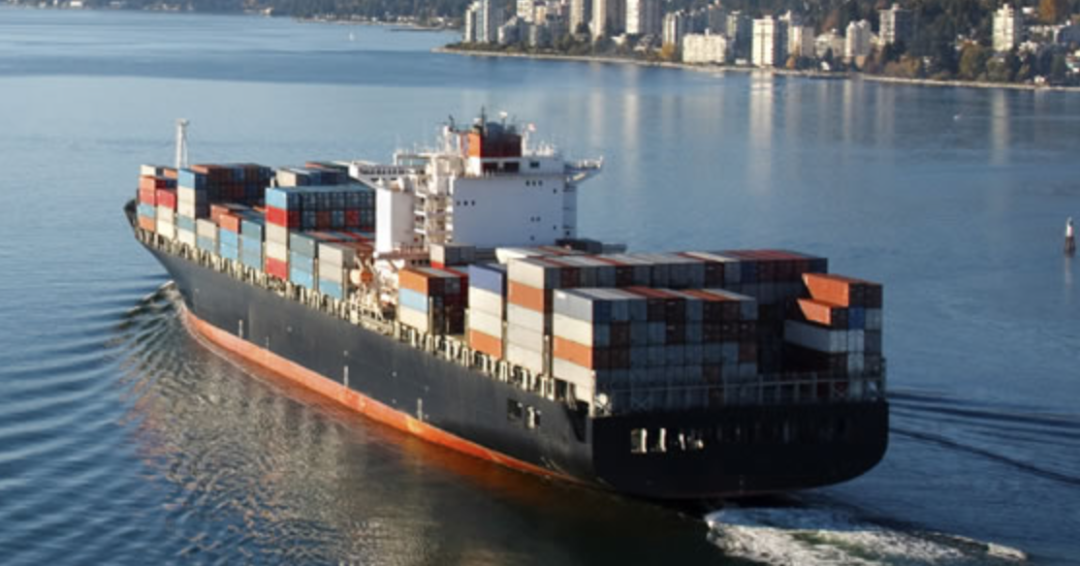Exporters cheer U.S. effort to clear shipping container blockage
Federal Maritime Commission to investigate ocean carriers operating in alliances as shippers wince under late fees.

Logistics providers are cheering a possible solution to skyrocketing container-detention fees they say have spiked in recent weeks, following news today that the Federal Maritime Commission (FMC) has opened an investigation into the enforcement of ocean carrier and marine terminal practices.
For months, both shippers and carriers have complained of knots and tangles in the international fabric of trade, as boxes have piled up in U.S. warehouses and the shipping lanes that reach them, leading to a related shortage of containers in Asia.
For example, the Port of Los Angeles on Wednesday reported that container traffic for October marked the busiest month in the facility’s 114-year history, but that sunny statistic hid a troubling detail. According to the port, for every three and a half containers that are imported into Los Angeles from abroad, only one container leaves American shores filled with U.S. exports.
Reasons for the imbalance include pandemic impacts such as hot U.S. demand for personal protective equipment (PPE) manufactured in Asia and a simultaneous shutdown of many North American manufacturing plants during Covid-19 shutdowns. Many containers are also tied up in the annual peak season surge of imports to the U.S. market, which was concentrated into a shorter period than usual in 2020 due to coronavirus disruptions. That flood of imports has stranded many containers at crowded maritime ports awaiting drayage to trucks and rail cars, according to Container xChange, a German firm that helps forwarders get access to third party container equipment while avoiding demurrage and detention charges.
Federal officials will now open a fact finding mission intended to investigate ocean carriers operating in alliances and calling the Port of Long Beach, the Port of Los Angeles, or the Port of New York and New Jersey, FMC said. The commission is the independent federal agency responsible for regulating the U.S. international ocean transportation system for the benefit of U.S. exporters, importers, and the U.S. consumer.
"The Commission has a compelling responsibility to investigate the situations that currently exist in our major port gateways. The Commission is concerned that certain practices of ocean carriers and their marine terminals may be amplifying the negative effect of bottlenecks at these ports and may be contrary to provisions in the Shipping Act of 1984,” FMC Commissioner Rebecca F. Dye said in a release. “The potentially unreasonable practices of carriers and marine terminals regarding container return, export containers, and demurrage and detention charges in the Ports of Los Angeles, Long Beach, and New York/New Jersey present a serious risk to the ability of the United States to handle trade growth.”
Shipper industry groups cheered the move, with the Agriculture Transportation Coalition (AgTC) saying the investigation was “terrific news” for U.S. exporters, importers, forwarders, and truckers. In a release, the AgTC said its members have provided information to the commission on “current supply chain dysfunction” caused by carrier and terminal practices including: refusal to carry export cargo, cancelling export bookings/refusing new bookings, lack of appointments, changing earliest return dates (ERDs), lack of free time, and lack of notice.
The group has complained for weeks about the rising costs faced by exporters when carriers make “unpredictable, last minute” changes to ERDs, which mark the earliest date that exporters can bring a container into a terminal. Without that knowledge, exports face additional demurrage, storage, chassis, and trucking costs, the AgTC said.
In similar statements, groups such as the British International Freight Association (BIFA) and the FIATA (International Federation of Freight Forwarders Associations) also backed the FMC, saying that freight forwarders and the shippers they work for are reeling from unjust demurrage fees linked to congestion in ports around the world, according to published reports.
Commission Approves Supplemental Order Expanding Fact Finding 29 Authority https://t.co/6YlXAVuwGY
— FMC (@FMC_gov) November 20, 2020

Copyright ©2024. All Rights ReservedDesign, CMS, Hosting & Web Development :: ePublishing